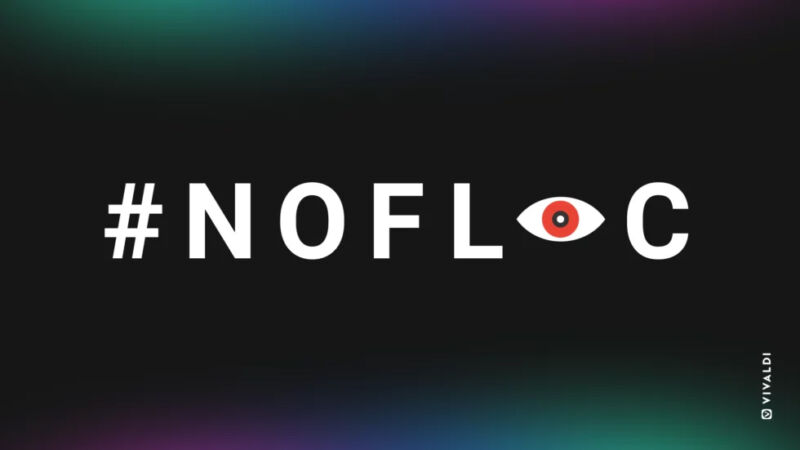
Enlarge / Vivaldi's graphic on FLoC. (credit: Vivaldi)
Google wants to kill third-party tracking cookies used for ads in Chrome with the "Chrome Privacy Sandbox." Since Google is also the world's largest ad company, though, it's not killing tracking cookies without putting something else in its place. Google's replacement plan is to have Chrome locally build an ad interest profile for you, via a system called "FLoC" (Federated Learning of Cohorts). Rather than having advertisers collect your browsing history to build an individual profile of you on their servers, Google wants to keep that data local, and have the browser to serve a list of your interests to advertisers whenever they ask via an API, so that you'll still get relevant ads. Google argues that conscripting the browser for ad interest tracking is a win for privacy, since it keeps your exact browsing history local and only serves up anonymized interest lists. Google does not have many other companies in its corner, though.
One of the first to come out against Google's plan was the EFF, which in March wrote a blog post called, "Google's FLoC is a Terrible Idea." The EFF seems to be against user tracking for ads entirely, saying Google's framing of the issue "is based on a false premise that we have to choose between "old tracking" and "new tracking."
"It's not either-or," the EFF writes. "Instead of re-inventing the tracking wheel, we should imagine a better world without the myriad problems of targeted ads." The EFF worries that FLoC won't stop advertisers from personally identifying people and that the API will serve up full profile data on first contact with a site, saving tracking companies from having to do the work of building a profile themselves over time. It also argues that "the machinery of targeted advertising has frequently been used for exploitation, discrimination, and harm."
Read 8 remaining paragraphs | Comments
https://ift.tt/3ehVIQD
Comments
Post a Comment